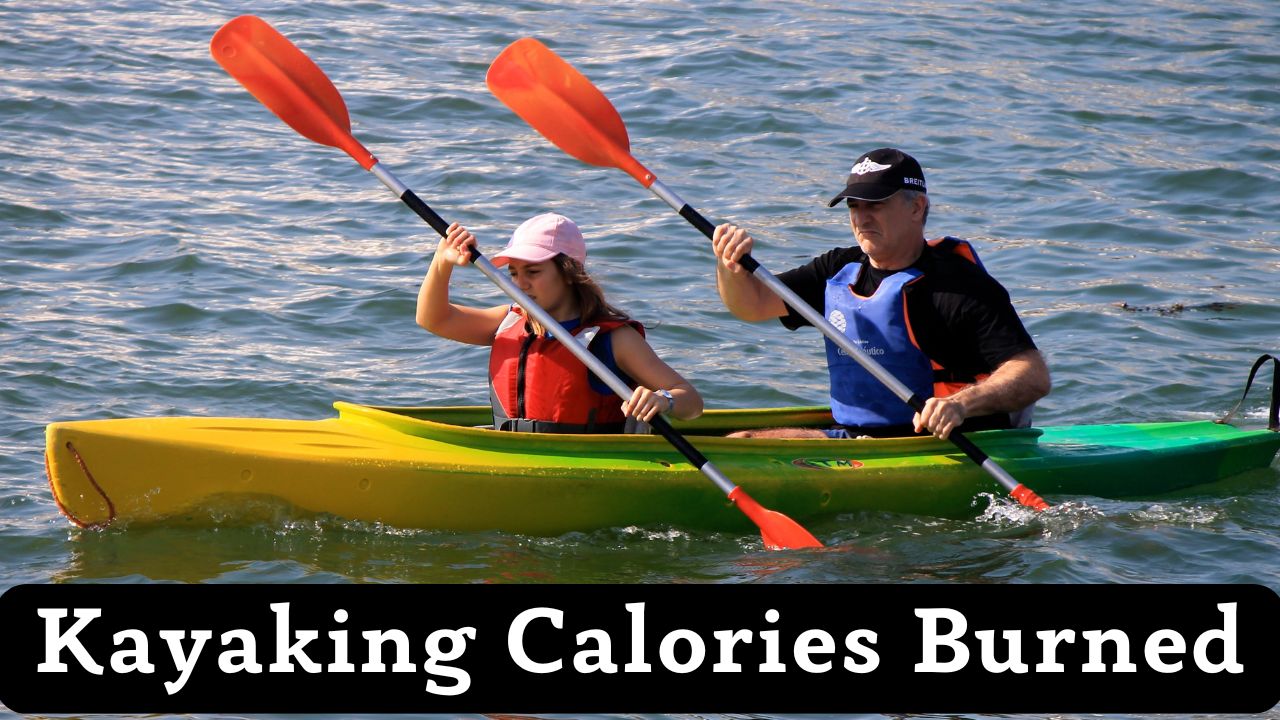Calories Burned Kayaking
Calculate calories burned during your kayaking adventure based on intensity, duration, and body weight.

Know Your Kayaking Calorie Burn
Ready to explore the calorie-burning potential of kayaking? According to comprehensive research, kayaking is an exceptional full-body workout that combines cardiovascular benefits with strength training. Let’s dive into how this engaging water sport can boost your fitness journey!
Kayaking Intensity Levels 📊
Based on metabolic studies, kayaking intensity affects calorie burn in different ways:
- Recreational Kayaking: 3.0-5.0 METs (Leisure pace)
- Moderate Kayaking: 5.0-7.0 METs (Steady touring)
- Vigorous Kayaking: 7.0-12.0 METs (Racing/Whitewater)
Health Benefits 🌟
Research confirms these key advantages:
- Upper body strength development
- Core stability enhancement
- Cardiovascular endurance
- Mental well-being boost
Calorie Burn Guide
| Duration | Recreational Pace | Moderate Touring | Vigorous Paddling |
|---|---|---|---|
| 30 Minutes | 120-150 calories | 180-240 calories | 300-400 calories |
| 60 Minutes | 240-300 calories | 360-480 calories | 600-800 calories |
| 90 Minutes | 360-450 calories | 540-720 calories | 900-1200 calories |
*Calorie estimates based on a 70kg (154-pound) person. For personalized calculations, use our calorie calculator.
Calculate Your Kayaking Calories 🔢
Kayaking Calorie Formula
Calories/minute = (MET × weight in kg × 3.5) ÷ 200
Understand the Components:
- MET (Metabolic Equivalent): Energy cost of kayaking (varies by intensity)
- Weight in kg: Your body weight in kilograms
- 3.5: Standard oxygen consumption at rest
- 200: Conversion factor for calories
Example Calculation:
For a 70kg person kayaking at moderate intensity (6.0 METs):
- Formula: (6.0 × 70 × 3.5) ÷ 200
- Step 1: 6.0 × 70 = 420
- Step 2: 420 × 3.5 = 1,470
- Step 3: 1,470 ÷ 200 = 7.35
Result: ≈ 7.4 calories per minute
For a 60-minute session: 7.4 × 60 = 444 calories
Factors Affecting Kayaking Calorie Burn
🏃♂️ Personal Factors
- Body weight
- Fitness level
- Paddling technique
- Experience level
🌊 Environmental Factors
- Water conditions
- Wind resistance
- Current strength
- Weather conditions
⚡ Performance Variables
- Paddling speed
- Distance covered
- Rest intervals
- Equipment type
Maximizing Your Kayaking Workout
Proper Technique
As highlighted by research studies, maintaining proper form maximizes calorie burn and prevents injury.
Progressive Training
Gradually increase duration and intensity as your fitness improves, following expert guidelines.
Session Planning
Mix different intensities and durations to optimize calorie burn and maintain engagement.
Smart Kayaking Practices
Optimal Training Pattern
- Warm-up: Start with 5-10 minutes of gentle paddling
- Intensity Mix: Alternate between moderate and vigorous efforts
- Duration: Build up to 45-90 minute sessions
- Recovery: Include regular hydration breaks
Related
- Home Activities Calories Burned Calculator
- Calories Burned Mowing The Lawn
- Gardening Calories Burned Calculator
- Calories To Grams Calculator
- Exercise Calories Burned Calculator
- Steps to Calories Calculator
- Total Daily Energy Expenditure (TDEE Calculator)
- Running Calorie Calculator
- Walking Calorie Burned Calculator
References
- Conger SA, Herrmann SD, Willis EA, Nightingale TE, Sherman JR, Ainsworth BE. 2024 Wheelchair Compendium of Physical Activities: An update of activity codes and energy expenditure values. Journal of Sport and Health Science, 2024;13(1): 18-23.
- Herrmann SD, Willis EA, Ainsworth BE, Barreira TV, Hastert M, Kracht CL, Schuna Jr. JM, Cai Z, Quan M, Tudor-Locke C, Whitt-Glover MC, Jacobs DR. 2024 Adult Compendium of Physical Activities: A third update of the energy costs of human activities. Journal of Sport and Health Science, 2024;13(1): 6-12.
- Michael, Jacob & Rooney, Kieron & Smith, Richard. (2008). The Metabolic Demands of Kayaking: A Review. Journal of sports science & medicine. 7. 1-7.
- Thulasi Raman, Deepak Ram & C, Ramesh. (2024). The Impact of Metabolic Equivalents (METS) on Physical Activity and Occupational Mental Health among IT Professionals Using mHealth. American Journal of Educational Research. 12. 12-19. 10.12691/education-12-1-2.
- Macdermid, P. W., Osborne, A., & Stannard, S. R. (2019). Mechanical Work and Physiological Responses to Simulated Flat Water Slalom Kayaking. Frontiers in Physiology, 10, 437895. https://doi.org/10.3389/fphys.2019.00260
- Shephard RJ. Science and medicine of canoeing and kayaking. Sports Med. 1987 Jan-Feb;4(1):19-33. doi: 10.2165/00007256-198704010-00003. PMID: 3547536.
- Neldi, Hendri & Nasriah, Anton & Mario, Deby & Umar, Arsil & Rasyid, Willadi. (2024). Physical and psychological conditions in kayaking: Strength, flexibility, and motivation. Journal of Human Sport and Exercise. 19. 10.14198/jhse.2024.191.13.

Manish is a NASM-certified fitness and nutrition coach with over 10 years of experience in weight lifting and fat loss fitness coaching. He specializes in gym-based training and has a lot of knowledge about exercise, lifting technique, biomechanics, and more.
Through “Fit Life Regime,” he generously shares the insights he’s gained over a decade in the field. His goal is to equip others with the knowledge to start their own fitness journey.
